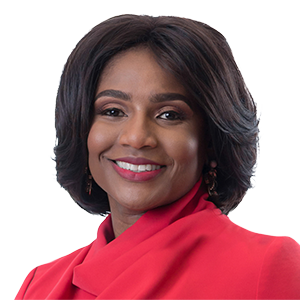International Women’s Day 2021
Mondial | Communiqué de presse – cabinet | mars 2021
International Women’s Day gives us an opportunity to celebrate the achievements of women, and in particular those working at our firm. The theme for 2021 is ‘Choose to Challenge,’ a reminder that we all can and should choose to call out gender bias and inequality to create an inclusive world.
Women are not a homogenous group; they are diverse by nature of their backgrounds, their life experiences, their abilities, perspectives and opinions, and International Women’s Day is about celebrating inclusion of women in its truest sense.
We have much to celebrate in our global firm – we have remarkable women doing notable work throughout the world. In January 2021, we became the first ‘Am Law 200’ firm to name a woman of color, Shauna Clark, as both our Global and US Chair. Recently, Shauna spoke with women leaders of the firm to get their views on the challenges that women face today, including discrimination and micro-aggression in the workplace and the perceptions of female leadership during a pandemic.
“Discrimination is much less overt now, it’s subconscious in many ways and I think that makes it more challenging to overcome,” said Alison Deitz, Managing Partner, Australia. “We, as female leaders, need to be very aware of that and ensure we can overcome it, whether by unconscious bias training or actively putting in place metrics for gender pay equity, to ensure that we’re not discriminating in any shape or form.”
“We’re getting to the point now where gender discrimination is more systemic, so it’s around the actual structures themselves and who is at the table making the decisions and the transparency around that, which is different to what was more bold and in your face in the past,” echoed Angela Tancock, Chief Strategy Officer, Canada.
The reality, then, is that women still are fighting not just for a place at the table – but to be listened to when they get a seat there.
“As a woman I get penalized for my tenacity and for being direct,” explained Natasha Moore, Head of Learning and Development, Europe, Middle East and Asia. “Women are often invited to the party, but we’re not invited to dance.”
One issue that remains is that women who are assertive are sometimes painted in a negative light, which can make them reluctant to display their full confidence or potential.
“In the context of the work place, many women wait until they are 100 percent ready to take up a challenge, whereas our male counterparts would not do that, and what I say to women is – you go the extra mile, not because you are a woman but because you will find very few people in that space, and that is your place to make your mark in, in whatever way you choose to,” said Marelise van der Westhuizen, CEO, South Africa.
“Women who are seen as go-getters can be judged more harshly and we don’t just see that in professional organizations, but in the wider world too,” added Farmida Bi, EMEA Chair. “Women politicians, for example, are held to a different standard. However, the thing I’ve found most interesting about the current pandemic is the discussion around whether female leaders in countries like New Zealand or South Korea have proved to be more successful because they are leading in a different, better way.”
“When I started, I didn’t have the courage to be my authentic self and I became very adept at shifting my personality to make those around me more comfortable, and it was just another weight that I carried, in addition to being black and a woman and young in a male-dominated environment,” Shauna said.
Combatting the issue requires raising issues of disrespect, implicit bias and micro-aggression when we see it, in order to seek to correct and improve it, Shauna said.
“The conversation needs to be about resilience and being human and correcting mistakes,” Shauna said.
“There are both the implicit bias issues that people have – I have them, we all have them – sometimes there are also biases that we hold ourselves to,” added Gina Shishima, Chief Strategy and Operations Partner, United States. “I also think it’s not the best thing to focus on; if I have to say it again, I’ll say it again. I think trying to be cognizant of it is key, but I try to focus on being effective.”
Read more about our diversity and inclusion efforts, including how we strive to achieve gender balance.

